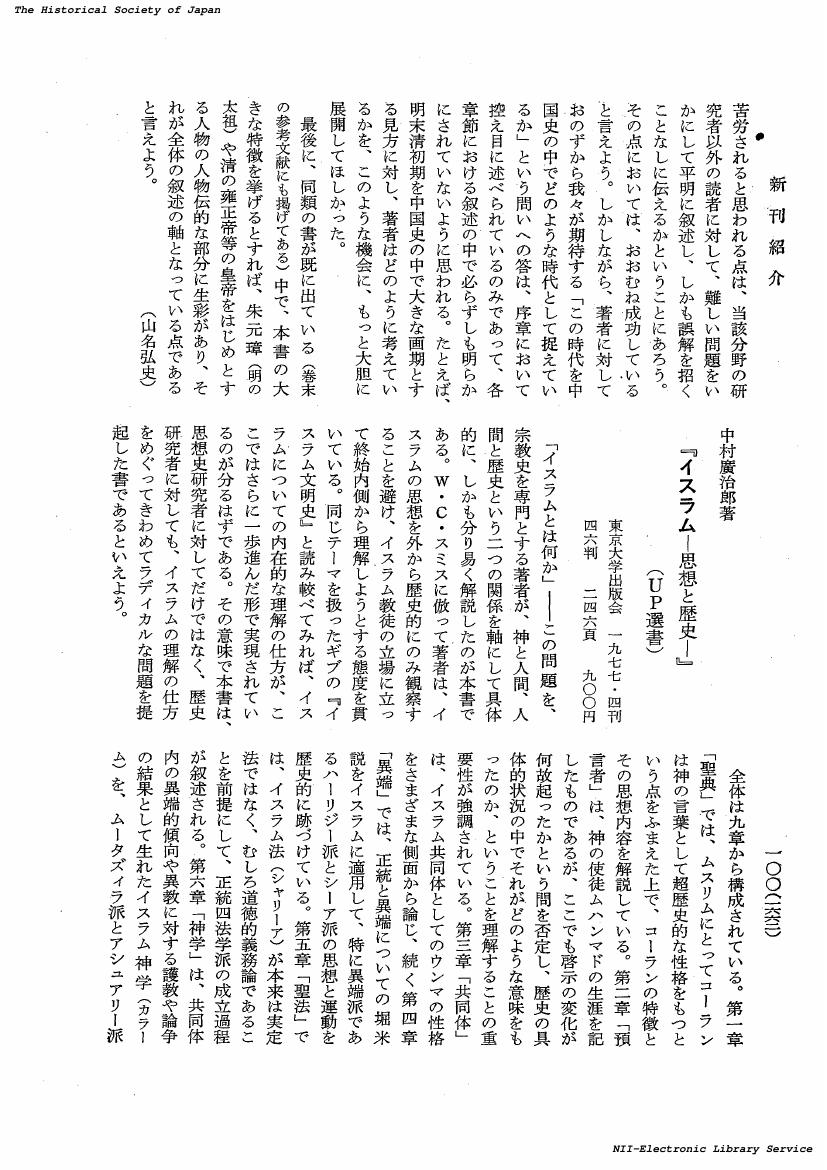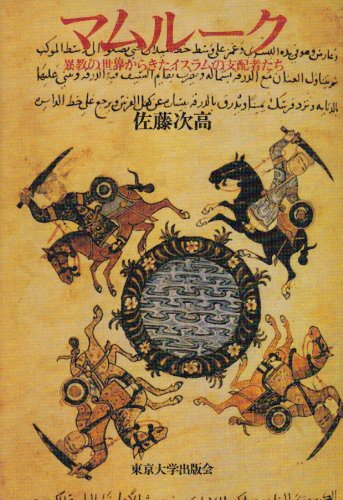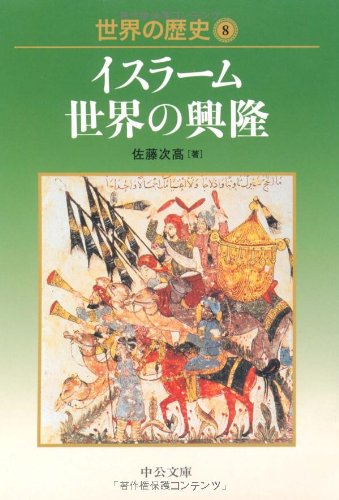- 著者
- 佐藤 次高
- 出版者
- 公益財団法人 史学会
- 雑誌
- 史学雑誌 (ISSN:00182478)
- 巻号頁・発行日
- vol.86, no.4, pp.464-465, 1977-04-20 (Released:2017-10-05)
- 著者
- 佐藤 次高
- 出版者
- 公益財団法人 史学会
- 雑誌
- 史学雑誌 (ISSN:00182478)
- 巻号頁・発行日
- vol.86, no.11, pp.1662-1663, 1977-11-20 (Released:2017-10-05)
5 0 0 0 OA ヌサイリー教徒の反乱:ジャバラ・一三一八年二月
- 著者
- 佐藤 次高
- 出版者
- 東洋文庫
- 雑誌
- 東洋学報 = The Toyo Gakuho (ISSN:03869067)
- 巻号頁・発行日
- vol.71, no.1・2, pp.115-139, 1989-12
On 17 Dhû a1-Hijja 717 A.H./20 February 1318 A.D., a man appeared at Qirtiyâwus in the Syrian province of Jabala and called himself Muhammad b a1-Hasan al-Mahdî. Three thousand of al-Nusayrîs immediately assembled around him asserting the deity of Alî b. Abî Tâlib. They proclaimed publicly the abolition of both prayer (salât) and abstinence from drink, and then attacked the Muslims of Jabala in public prayer. Among the rebels was included a youth named “Ibrâhîm b. Adham”, a popular sûfî saint who died in Jabala in the latter half of the 8th century. Received the news of their revolt, amir Shihâb al-Dîn Qirtây, governor of Tripoli, despatched 1,000 cavalries under the command of his three Mamlûk amirs. On Dhû al-Hijja/25 February they battled with al-Nusayrîs and succeeded easily in suppressing the revolt after they killed 120 rebels including al-Mahdî.According to the contemporary sources such as al-Nuwayrî’s Nihâya al-Arab and Ibn Battûta’s Rihla, the revolt was clearly against the religious policy of the Mamluk government toward al-Nusayrîs. In 1317 Sultan al-Nâsir (1293-94, 1299-1309, 1310-41) carried out the cadastral survey (rawk) in the province of Tripoli including Jabala and ordered al-Nusayrîs to construct mosque (masjid) in each village. Then he prohibited them strictly from holding the initiation called “khitâb” in which new participants are granted the secret creeds peculiar to al-Nusayrîs. Al-Maqrîzî (d. 1442) explains that they believe Alî’s deity and insist the idea of heaven and hell to be denied. The sunnî ulamâ’ in the Mamluk period regarded al-Nusayrî’s belief as infidel and estimated them inferior even to the Christians and Jews. We find its example in the fatwâ of Ibn Taymîya which was delivered at the revolt of a1-Nusayrîs in 1318.
3 0 0 0 OA イブン・アブド・アッザーヒル著『バイバルス伝』の新刊行史料
- 著者
- 佐藤 次高
- 出版者
- 東洋文庫
- 雑誌
- 東洋学報 = The Toyo Gakuho (ISSN:03869067)
- 巻号頁・発行日
- vol.64, no.1・2, pp.191-198, 1983-01
3 0 0 0 OA 先端的な科学技術を視点としたイスラム問題の系譜的かつ広域的な研究と将来の展望
- 著者
- 北村 歳治 佐藤 次高 店田 廣文 桜井 啓子 山崎 芳男 吉村 作治 長谷川 奏 及川 靖広 鴨川 明子 高橋 謙三 保坂 修司 北村 歳治
- 出版者
- 早稲田大学
- 雑誌
- 基盤研究(A)
- 巻号頁・発行日
- 2006
1)系譜研究:農業分野では精糖技術の復元、窯業分野ではイスラム陶器の分析研究、薬学分野では医薬技術と社会意識との接点の研究を通して、前イスラムの時代から近代直前期まで幅広い時代のイスラム技術の系譜が紐解かれた。2)広域研究:中東イスラム、東南アジア、中央アジアの動向分析を通して、地域に育まれた豊かな経済が新たな資源の登場によって消滅していく過程や、イスラム圏の各地でITがさまざまな形で積極的に利用されている動向も明らかになった。
2 0 0 0 農民
- 著者
- 佐藤次高 冨岡倍雄編
- 出版者
- 東洋経済新報社
- 巻号頁・発行日
- 1984
本研究は、イスラム社会の変動を科学技術の視点から分析することを目的とする。具体的には、1)イスラム世界を歴史と現代に至る技術革新の流れの中で概観し、2)IT等の科学技術がもたらす「一様化」と個別化がもたらす「多様化」の双方からイスラムの社会経済・文化の問題を分析する。1)では、マムルーク朝の文献資料を基に農業分野の技術革新を分析し、エジプトが砂糖産出国に変貌していった過程に焦点をあて、イスラム文化が実践性と受容性に富んでいる背景を明らかにした。また、今日のイスラム系のウェブサイトが英語とアラビア語を駆使して双方向性のコミュニケーションに成功している事実を明らかにした。2)では、イスラム地域でのワークショップやフィールド調査等を通じて、以下の成果を得た。(1)経済・ビジネス関連:民主化推進派と保守強硬派がせめぎあう中で、科学技術を意識した湾岸諸国は、石油依存経済からの脱却と産業の多角化を進め東アジア等との経済関係を強化したが、イスラム地域全体としては取組みが停滞している点、トルコでは経済改革を通じEU加盟を現実化させる方向に進んでいることが逆に西欧キリスト教国に対しイスラム的努力をどれだけ受容できるのかという新たな問題を提起した点、また、イスラム金融が東アジアの金融取引において看過できない動きとなっている点等を明らかにした。(2)情報・技術関連:ITの進展とともに、インターネットが過激派のサイバー・テロ手段となる傾向も顕著となった点を具体的に捉えた。(3)社会・文化関連:エジプトでは、電子化政策の推進が文化財保護行政にプラスしている点、東南アジアでは、インドネシアのユドヨノ政権の成立過程でイスラム団体を含む民主化勢力の貢献が見られた点、マレーシアでは海外からの投資を梃子にした人材育成やハイテク産業の育成及び中等教育に主眼を置いた教育体系も科学技術と経営を重視してきた点等を明らかにした。
1 0 0 0 アラブ中世社会史研究
- 著者
- 佐藤 次高
- 出版者
- 一般社団法人 日本オリエント学会
- 雑誌
- オリエント (ISSN:00305219)
- 巻号頁・発行日
- vol.21, no.1, pp.60-67, 1978
1 0 0 0 マムルーク : 異教の世界からきたイスラムの支配者たち
1 0 0 0 イスラーム世界の興隆
1 0 0 0 比較の手法によるイスラ-ムの都市性の総合的研究(総括班)
本研究計画は最終年度にあたり、総括班の連絡と調整のもとに研究活動のとりまとめが行なわれた。具体的には1.研究会の開催:公開性を原則とし、研究班組織にとらわれず、また研究分担者以外の研究者も参加した多様な形式の研究会が組織され成功した(3年間に191回)。とくに総括班の機能性を発揮して、クウェ-ト危機、地震、都市環境に関するセミナ-など現実の問題に即応した研究会がもてたことも成果のひとつである。2.第2回国際会議(中近東文化センタ-との共催 12月27〜29日)を開催し国際共同研究を充実させた。3.成果の流通:共同研究の新しいモデルとして、研究分担者や関連研究者に研究成果を迅速に公開することを目的とした出版活動も順調に行われた。3年間の出版物は231点になる。4・成果の公開性:特に今年度は研究成果の社会的還元のために、大学院生・学部学生を対象としたサマ-・スク-ル(7月23〜27日)を、一般市民を対象とした講演会を各地(仙台・大阪・福岡など)で開催した。1991年2月11〜12日の「大学と科学」公開シンポジウムー都市文明イスラ-ムの世界ーにも全面協力した。2.全体の研究活動のとりまとめとして全体集会(12月1〜2日)を開催し、共同研究・比較研究の総括がなされた。また、招へいしていたDale F.Eickelman、Hassan Hanafiの両氏より国際的見地からの評価ととりまとめに対する助言をうけた。3月23日には本研究のしめくくりの研究会を予定している。5.新たな理論枠組みに基づく研究成果のとりまとめとして、研究分担者全員および関連研究者が執筆に当たる『事典「イスラ-ムの都市性」』、『イスラ-ム都市研究史ー歴史と展望』、『イスラ-ム都市から世界史をみなおす』等の刊行が準備されている。
1 0 0 0 比較の手法によるイスラームの都市性の総合的研究(総括班)
イスラムの都市性を比較の視点から検討しその総合的解明を目指す本研究において、総括班は共同研究の実をあげるために、研究全体の活動の相互の連絡・調整に当たった。即ち、互いに関連する研究班の合同研究会やセミナーの開催、研究成果の発表のための出版活動、海外の研究者・研究機関との交流などに努めた。具体的には、1.研究会の開催:個別研究班を統合した合同研究会、外国人招聘研究員Anouar Abdel-Malek, Nurcholish Madjid氏を中心とした国際セミナー、在日中のMochtar Naim, Abdallah Hanna, Mahmud Hareitani, EmileA. Nakhleh氏を招いた研究集会や公開講演会を開催した。これにより、個別研究の枠を超えた情報交換を実現し、国際的共同研究を進展させ、成果を広く社会に還元することに努めた。2.成果の流通:研究成果を研究分担者全員が随時共有するため、ニューズレター「マディーニーヤ」(創刊準備号〜15号)、研究報告シリーズ(1〜23号)、研究会報告シリーズ(1〜7号)、Monograph Series(No.1〜8)、広報シリーズ(1〜2号)を出版し、国内外の研究者・研究機関に配布し、研究連絡網を確立した。3.総括班副代表の後藤明をアメリカ合衆国に派遣し、本研究活動に対する当地の研究者の協力を要請するとともに、関係学会、研究機関との研究協力態勢の確立につとめた。4.来年度開催予定の国際シンポジウムにむけて、数次にわたる準備連絡会議をもち、各セクションのテーマの設定、招聘研究者の選定などの作業を行った。すでに第二次サーキュラーを内外の研究者に配布した。以上の諸活動により、イスラム世界の都市性についての研究視角が明確化し、都市研究における新たな参照テーマとしてイスラム圏の都市研究の重要性が広く認識され、活発な比較研究を刺激・促進する結果を生んだ。
1 0 0 0 OA 11~12世紀シリア地方社会の裁判官 -トリポリとジャバラの場合-
- 著者
- 佐藤 次高
- 出版者
- 一般社団法人 日本オリエント学会
- 雑誌
- オリエント (ISSN:00305219)
- 巻号頁・発行日
- vol.34, no.2, pp.1-16, 1991 (Released:2010-03-12)
Some Coastal towns of Syria during the 11th-12th centuries were headed by local qadis (judges) who had acquired independence from either Fatimid, Seljuqid, or Byzantine rule. These urban states have been the objects of serious research by such scholars as Cl. Cahen, E. Ashtor, A. Havemann and U. A. Tadmuri. But as for the period when qadis lost their independence, few references are made to their role in Muslim urban life. The cases of Tripoli and Jabala, because of ample information, may provide us with a means to better our understanding of local qadis in medieval Islamic societies.During the years 1066-1070 the qadi office of Tripoli was established by Amin al-Dawla, a Shi'ite jurist of great reputation, from the 'Ammar family. Jabala also had a wise qadi named Mansur, who managed the judicial affairs among Muslims under Byzantine rule. His status (Ra'is Jabala) was inherited by his son, Ibn Sulayha, who maintained independence against the pressure of the Seljuqids until the arrival of the Crusaders. Ibn Sulayha, faced with a strong siege by the Crusaders, was forced to transfer sovereignty to Tripoli; but another qadi, Ibn al-Naqqar, then continued to manage judicial affairs in Jabala. Even under the Crusader rule from July 1109, Jabala was administered by an influential qadi named Mansur b. Nabil, who succeeded afterwards in delivering the town to Saladin.These instances reveal that the qadis of Tripoli and Jabala managed these municipalities even during the periods when towns lost their independence. We may therefore evaluate positively the role of local qadis before the Ottoman period, a time when they came to be organized more systematically into that empire's provincial administration.
1 0 0 0 OA 科学および地域の史的観点に立つイスラム問題の比較分析-中東と東南・中央アジア-
- 著者
- 北村 歳治 佐藤 次高 店田 廣文 近藤 二郎 桜井 啓子 高橋 謙三 長谷川 奏 吉村 作治 山崎 芳男 及川 靖広 岡野 智彦 鴨川 明子 北村 歳治 保坂 修司 加納 貞彦 深見 奈緒子 鈴木 孝典
- 出版者
- 早稲田大学
- 雑誌
- 基盤研究(A)
- 巻号頁・発行日
- 2010-04-01
本調査研究は、歴史的系譜と地域的特性を念頭に置き、科学技術と東南アジア・中東等に焦点を当て今日的な視点で取り組んできた。具体的には、イスラーム諸地域の研究者等と直接的に連携し、天文・陶器・医薬・建築等の分野で斬新な調査活動を進め、非イスラームとの相互交流から生まれ出た歴史的なイスラーム文化の保存・育成の研究に成果をもたらした。他方、ICT利用・医療サービス・金融等の今日的な課題に取り組むイスラーム諸地域の動きに関する調査分析も行なった。これらの成果は、早稲田大学、インドネシア国立イスラーム大学等で行われた計6回のシンポジウム等で今日のイスラーム問題の躍動する建設的な側面を明らかにできた。
1.中東、中央アジア、中国、東南アジア、南アジア、アフリカ、ヨーロッパ、アメリカを対象に、イスラームの諸問題を政治、経済、思想、歴史、地理など広範な分野にわたって検討し、近現代の政治運動、知識人の社会的役割、聖者崇拝など、将来の重要研究課題を明らかにした。2.和文と英文のホームページを開設し、研究情報を迅速に公開したことにより、日本のイスラーム研究の活性化と国際化を実現することができた。研究の成果は、和文(全8巻)および英文(全12巻)の研究叢書として刊行される。なお、英文叢書については、すでに3巻を刊行している。3.アラビア文字資料のデータベース化を推進し、本プロジェクトが開発した方式により、全国共同利用の体制を整えた。これにより、国内に所在するアラビア語、ペルシア語などの文献検索をインターネット上で簡便に行うことが可能となった。4.各種の研究会、現地調査、外国人研究者を交えたワークショップ、国際会議に助手・大学院生を招き、次世代の研究を担う若手研究者を育成した。とりわけ国際シンポジウムに多数の大学院生が参加したことは、海外の研究者からも高い評価を受けた。5.韓国、エジプト、トルコ、モロッコ、フランスなどから若手研究者を招聘し(期間は1〜2年)、共同研究を実施するとともに、国際交流の進展に努めた。6.東洋文庫、国立民族学博物館地域研究企画交流センターなどの研究拠点に、イスラーム地域に関する多様な史資料を収集し、今後の研究の展開に必要な基盤を整備した。




